Tarun Sharma and Yutika Vora. "Rise in Sea Levels: Fate of Small and Mid-sized Coastal Cities". Nagrika. Accessed January 12, 2025. https://www.nagrika.org/... (Contributed by Gregory Autin).
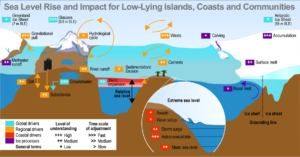 Climate change is accelerating the sea level rise in India and globally. In December 2023, sea level was 104 mm above 1993’s measure, which reveals the unprecedented rate at which the sea level is currently rising. This is the result of a two-fold effect, attributed to both the thermal expansion of seawater and melting of ice sheets and glaciers. Sea level rise poses significant threats like erosion, flooding, and groundwater contamination in coastal cities worldwide, along with the loss of vegetation and aquatic life. In recent decades, the latter has become a more dominant contributor. Collecting and maintaining sea level rise data is a complex process compared to monitoring air quality and temperature data, for which continuous observational data from several decades is required.
Climate change is accelerating the sea level rise in India and globally. In December 2023, sea level was 104 mm above 1993’s measure, which reveals the unprecedented rate at which the sea level is currently rising. This is the result of a two-fold effect, attributed to both the thermal expansion of seawater and melting of ice sheets and glaciers. Sea level rise poses significant threats like erosion, flooding, and groundwater contamination in coastal cities worldwide, along with the loss of vegetation and aquatic life. In recent decades, the latter has become a more dominant contributor. Collecting and maintaining sea level rise data is a complex process compared to monitoring air quality and temperature data, for which continuous observational data from several decades is required.
Posted on 12/01/25
Recent Abstracts
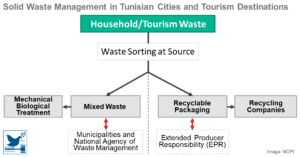
Conceptualizing Core Aspects on Circular Economy in Cities
Circular economy policy and practices are implemented at the local level to form circular communities. Circularity at the urban level calls for great effort and innovation to successfully transition from the linear economy to circular cities. However, local governments and policymakers are uncertain about how to deve ...
Posted on 24/08/22
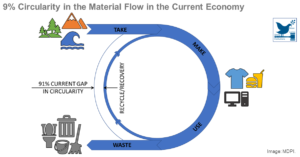
3 Ways We Can Collaborate Better for a Circular Economy
Collaboration between all stakeholders is essential for a successful circular economy. Where stakeholder collaboration is difficult to achieve and there is little cross-sector collaboration, circular innovations are costly and scarcely adapted. To make meaningful progress in circularity, we must have a collaborative ...
Posted on 22/08/22
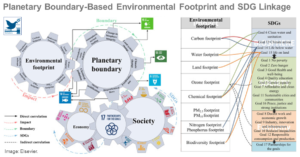
Intersections Between the Planetary Boundaries and the Circular Economy
Circular economy (CE) is an umbrella concept that encapsulates and connects separate knowledge areas and experiences in terms of resource efficiency and reduced environmental impacts. Proof of CE’s capacity to create the conditions required for meeting human needs within planetary boundaries (PBs) is still lacking. P ...
Posted on 19/08/22
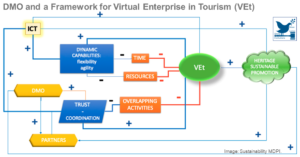
Destination Management and Sustainable Development through the Common Lens of the Commons
Local destination management organization (DMO) involves a large participatory process for strategic planning and monitoring combined with decentralized operational planning and management. This paper illustrates problems and obstacles for the creation of a local DMO promoting a tourism destination’s sustainable devel ...
Posted on 17/08/22
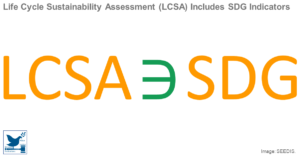
Life Cycle Sustainability Assessment—A Survey Based Potential Future Development for Implementation and Interpretation
Life cycle sustainability assessment (LCSA) provides valuable support for stakeholders and interested third parties regarding sustainability assessments, environmental footprints, emission optimization, and corporate communication. The state-of-the-art LCSA framework extends the scope of life cycle assessment (LCA) by ...
Posted on 12/08/22
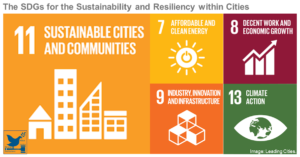
The AURA Guide
Urban development and construction have a significant impact on all sustainable development indicators in a city. The City of Montpellier adopted a proactive urban policy in the AURA urban planning guide based on social, environmental and economic development management principles aligned with sustainable development ...
Posted on 10/08/22
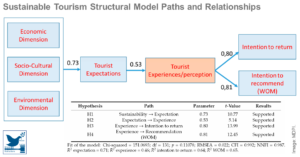
Characteristic of Green Event Practices in MICE Tourism: A Systematic Literature Review
MICE is the fastest-growing segment in hospitality and a significant contributor to the global tourism industry. Increased awareness of green practices among MICE event stakeholders has changed event organizers' perception of sustainability. This paper reviews green practices in meeting, incentive, convention, and exh ...
Posted on 08/08/22
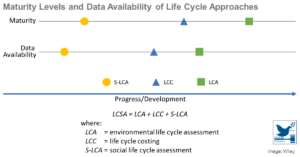
Methodological Framework to Find Links between Life Cycle Sustainability Assessment Categories and the UN Sustainable Development Goals Based on Literature
Life cycle sustainability assessment (LCSA) is suggested to be the best method to assess the environmental, economic, and social impacts of products along their life cycle in the context of the Sustainable Development Goals (SDGs) supporting them. It links LCSA categories and measures the sustainability performance of ...
Posted on 05/08/22
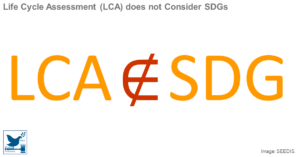
Life Cycle Assessment Support to Environmental Ambitions of EU Policies and the Sustainable Development Goals
The European Green Deal and the Sustainable Development Goals (SDGs) call for a holistic approach to production and consumption along value chains and the use of life cycle assessment (LCA) to support policy design and monitoring. This paper evaluates LCA in supporting EU SDG policies and the Planetary Boundaries (PBs ...
Posted on 02/08/22

Steering the Circular Economy: A New Role for Adam Smith’s Invisible Hand
Adam Smith’s seminal work in economics suggested that the morality of a society guides the “invisible hand” that steers free trade in a positive direction. Smith recognized the society-economy nexus and equilibrium in his economic theory as crucial to society’s socioeconomic progress. The circular economy relates to ...
Posted on 29/07/22
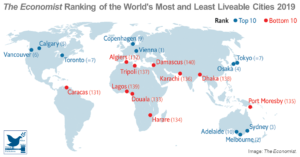
These Are the World’s Most Liveable Cities
City liveability is important on various levels and impacts the daily lives of billions of people. Over 80% of global GDP is generated in cities, while consuming nearly 80% of the world's energy and producing more than 60% of its greenhouse gas (GHG) emissions. Therefore, building liveable, future-ready and sustainable ...
Posted on 27/07/22
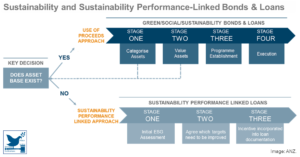
Sustainability-Linked Loans: A Strong ESG Commitment or a Vehicle for Greenwashing?
ESG lending has terms contractually tied to the sustainability performance of borrowing companies and enables them to credibly signal their ESG commitments to external stakeholders. But, it has been found that the disclosure of sustainability-linked loan contractual details is generally low, with considerable variatio ...
Posted on 22/07/22
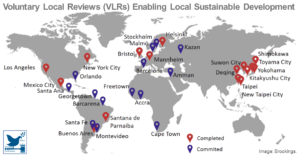
Voluntary Local Reviews, VLRs Toolbox
While contributing to local democracy, this toolbox supports local governments in monitoring and reporting on the implementation of the UN Sustainable Development Goals (SDGs) using voluntary local reviews (VLRs). VLRs contribute to the achievement of the SDGs by evaluating and monitoring progress, demonstrating polit ...
Posted on 18/07/22

United Hospitality Industry Sets Ambitious Global Vision for Sector Sustainability
This guidance for the hospitality industry is designed to encourage combined action across the value chain, with actions to support hotel operators, asset/building owners, and brands. It encourages all hotels to aim for net positive environmental impacts wherever they are located and whatever their starting point. Th ...
Posted on 15/07/22
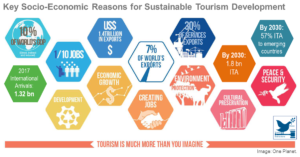
Sustainable Development
Sustainability principles balance the environmental, economic, and socio-cultural aspects of tourism development, to guarantee its long-term sustainability. Achieving sustainable tourism is a continuous process. These guidelines and management practices published by the UNWTO are applicable to all forms of tourism in ...
Posted on 13/07/22

